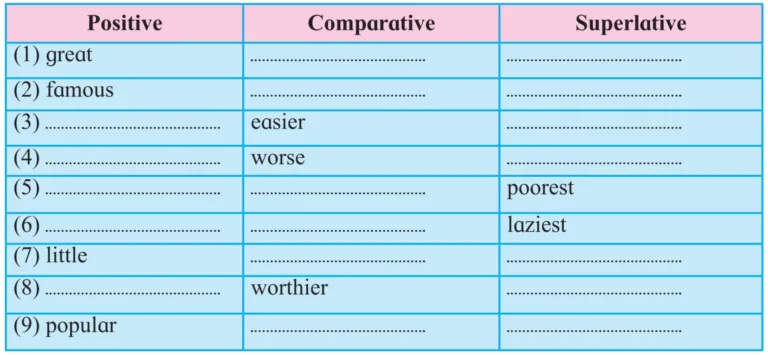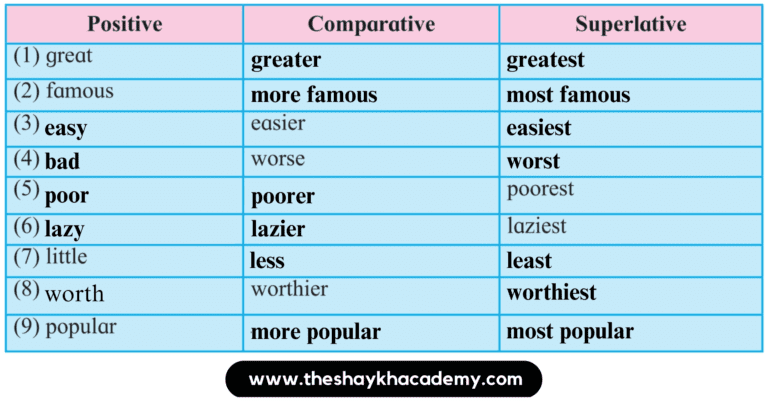Chapter 1.2 - Dick Whittington and his Cat
dismay : great disappointment
alley : a narrow passage between or behind buildings
attic : a very small room inside a pointed roof
scampered : ran here and there
overcome : succeed in dealing with a problem
put up with : tolerate
mouser : an animal that catches mice
plague : (here) a thing that causes great trouble
knighted : given a highly honoured title
Warming up!
1. Discuss the following in groups and write the answers.
(a) Name the world famous personalities, who reached great heights despite humble circumstances.

Ans:
Dr. A.P.J. Abdul Kalam
Abraham Lincoln
Charlie Chaplin
Kalpana Chawla
(b) Guess the types of hardships they must have faced in their childhood and youth.
Ans:
(i) poverty
(ii) lack of support
(iii) social disapproval
(iv) lack of opportunities
(c) What strong qualities possessed by them could have helped them achieve success and fame, all over?
Ans:
(i) strong will power
(ii) optimism
(iii) sincerity
(iv) hard work
(d) How do stories / biographies of such famous people help youngsters?
Ans:
(i) They help youngsters to look at life positively.
(ii) They inspire the youth
(iii) They help them find answers to questions.
(iv) They prove that we can do many seemingly impossible things if we really wish to.
2. Syllable : A syllable is a unit of pronunciation that has one vowel sound and may or may not have consonant sounds before / after it.
Examples of words having :
(i) One syllable : a, I, see, at, on, man, with, thread
(ii) Two syllables : mother, seated, giraffe, parrot, active, happy
(iii) Three syllables : happiness, wonderful, animal, surprising, adventure, ignorance.
(iv) More than three syllables : consequently, encouragement, responsibility, identifying, encyclopedia
Write the names of any 5 of your classmates and list how many syllables each name has.
Ans:
(i) Jai: 1 syllable
(ii) Remo: 2 syllables
(iii) Saira: 2 syllables
(iv) Shailaja: 3 syllables
(v) Ali: 2 syllables
In Between The Lesson
Q1. What innocent belief made Dick decide to go to London?
Ans: Dick overheard someone say that the streets of London were paved with gold and he decided to pick up his fortune in gold pieces from the streets. This innocent belief made him decide to go to London.
Q2. What hardships did he face on arriving in London?
Ans: Dick arrived in London just before nightfall. He had no place to sleep, and he finally slept in the corner of a narrow lane. The following morning. Dick woke up feeling cold, miserable, and hungry. He begged for food, but people shouted at him and hit him angrily on the head. He finally collapsed and lay there, too weak to look further for food.
Q3. How did Mr Fitzwarren favour Dick?
Ans: Mr Fitzwarren favoured Dick by feeding him and finding some work for him in his kitchen.
Q4. What difficulties did Dick have to face at Mr Fitzwarrens house?
Ans: Dick had two difficulties to face at Mr. Fitzwarren. The first was that the attic he slept in was overrun by rats and mice. At night, they scampered all over him and kept him awake. The other difficulty, which was not so easy to overcome, was the cook’s bad temper. She shouted and screamed all day and would scold Dick and hit him with a wooden spoon, even when he was working as hard as he could.
Q5. How did the cat prove to be very useful?
Ans: The cat chased away all the rats and mice, so Dick was able to sleep peacefully. This way the cat proved very useful to Dick.
Q6. What inspired Dick to return back to Mr Fitzwarren’s home?
Ans: When Dick sat down on a stone to rest, he heard the church bells ringing. As he listened, it seemed that they were ringing a message for him, telling him that he should go back home, and calling him the Mayor of London.
Q7. Why was the Captain of the ship so overjoyed?
Ans: The captain of the ship was overjoyed, as the cat was an excellent mouser, and so he had no trouble with rats and mice on his voyage.
Q8. What happened when food was brought in, at the palace?
Ans: When the food was brought in, almost immediately rats and mice ran up and ate all the food. So, the captain sent a message asking for Dick’s cat to be brought to the palace. More food was laid out, and the rats and mice appeared as before. The cat immediately pounced, killing at least a dozen before they scattered.
Q9. Why was the queen afraid of the cat?
Ans: The queen was afraid of the cat because she had seen how fiercely it had attacked the rats and the mice.
Q10. How much did the king pay for the cat?
Ans: The king paid ten times the sum for the cat that he had paid for the whole cargo from Mr. Fitzwarren’s ship.
Q11. What changes had the cat brought to Dick’s life?
Ans: In the beginning, the cat helped Dick sleep peacefully at night by chasing away all the rats and mice that ran about in the attic. Later, as it was a good mouser, it was bought by the king of Barbary for a very large sum of money, which was given to Dick. He thus became a rich man and later became a successful merchant.
ENGLISH WORKSHOP
1. (A) Arrange the following set of words in the alphabetical order in your notebook.
ship, small, successful, scoldings, stone, saving, someone, stood, streets, still, screamed, sat, seemed, saint, share.
Ans: saint, sat, saving, scoldings, screamed, seemed, share, ship, small, someone, still, stone, ‘stood, streets, successful.
(B) Remove the Affixes (Prefix and Suffix) and write the Root-word.
(1) successful
Ans: success
(2) immediately
Ans: immediate
(3) retrace
Ans: trace
(4) mouser
Ans: mouse
(5) unfriendly
Ans: friend
(6) fallen
Ans: fall
(7) unkind
Ans: kind
(8) wooden
Ans: wood
(9) luckily
Ans: luck
(10) belonging
Ans: belong
2. (A) Find from the story one word for the following.
(a) a small room just below a sloping roof
Ans: attic
(b) a very narrow passage between buildings
Ans: alley
(c) the highest – ranking officer in the Municipality of a city/town
Ans: Mayor
(d) the highest ranking official who commands a ship
Ans: Captain
(e) any animal that catches mice
Ans: capital
(f) a low constant sound made by cats
Ans: mouser
(B) Make sentences of your own using the following expressions.
(1) overcome :
Ans: The night before the test, I was overcome by fear and despair.
(2) put up with :
Ans: I don’t know how he puts up with their constant complaining.
(3) bargain :
Ans: I got a bargain on the plane tickets.
3. Rearrange the following events as they occur in the story. Put the correct number in the boxes.
(a) Mr Fitzwarren provided shelter to Dick.
(b) A carter gave Dick a lift to London.
(c) The cat sailed to the African coast.
(d) The captain sold the cat for a very high amount of money.
(e) Dick left his village on foot, to go to London.
(f) Dick became rich, and later, the Mayor of London.
(g) Dick was homeless, helpless, cold and hungry.
(h) Dick bought a cat to get rid of the mice.
(i) The rats and mice ate up all the dinner, laid for the king and queen.
Ans:
(d) The captain sold the cat for a very high amount of money.
(b) A carter gave Dick a lift to London.
(f) Dick became rich, and later, the Mayor of London.
(h) Dick bought a cat to get rid of the mice.
(a) Mr Fitzwarren provided shelter to Dick.
(i) The rats and mice ate up all the dinner, laid for the king and queen.
(c) The cat sailed to the African coast.
(e) Dick left his village on foot, to go to London.
(g) Dick was homeless, helpless, cold and hungry.
4. Think and answer.
(a) What decision taken by Dick changed his fortune?
Ans: On hearing the church bells send out a message to him, Dick decided to retrace his steps and go back to Mr. Fitzwarren’s house instead of running away. This decision changed Dick’s fortune
(b) What message does this story bring out for youngsters?
Ans: The message that this story brings out for youngsters is that we must not run away from difficulties but face them bravely.
5. (A) Break the words below into syllables as shown in the first one.
(a) belonging :
Ans: be – long – ing
(b) unfriendly :
Ans: un – friend – ly
(c) anything :
Ans: any – thing
(d) difficulty :
Ans: di – ffi – cult
(e) captain :
Ans: cap – tain
(f) morning :
Ans: mor – ning
(g) citizen :
Ans: citi – zen
(h) message :
Ans: mess – age
(i) mayor :
Ans: may – or
(j) elected :
Ans: e – lec – ted
(B) Degrees of Comparison of Adjectives.
Read the sentences.
(i) Yatin is strong.
(ii) Amit is stronger than Yatin.
(iii) Pravin is the strongest of all.
In sentence (i) the Adjective ‘strong’ is in its simple form. It is called a Positive Degree.
In sentence (ii) the Adjective ‘stronger’ refers to a higher degree, when there is a comparison of two nouns. It is called Comparative Degree. (-er is added to the basic Adjective)
In sentence (iii) the adjective ‘strongest’ refers to the highest degree of comparison of one with more than two nouns. It is called Superlative Degree. (-est is added to the basic Adjective)
Complete the table of degrees of comparison.

Ans:

6. Select any one of the famous personalities mentioned in ‘Warming up 1’ on page no. 5. From the library or internet find out their success story. Write it in your own words in about 20 to 30 lines of your notebook. Give your write-up a suitable title.
Ans:
From Rags to Rockets: The Inspiring Journey of Dr. APJ Abdul Kalam
Dr. APJ Abdul Kalam, born into poverty on October 15, 1931, emerged as India’s celebrated “Missile Man” and the 11th President. Despite financial struggles, Kalam excelled academically, joining the DRDO in 1958. His contributions to space and missile programs earned him recognition, leading to the development of SLV-3 and critical ballistic missiles.
In 1998, he played a vital role in the successful nuclear tests. Awarded the Bharat Ratna in 1997, he authored “Wings of Fire” and motivated youth through his speeches. Elected President in 2002, Kalam focused on education, sustainable development, and promoting peace. His PURA project aimed to improve rural infrastructure. After his term, he remained active in education and social initiatives.
Humble and compassionate, he inspired millions with his life story and emphasized the importance of hard work, ethics, and dreaming big. His legacy continues to inspire India’s progress in science, technology, and education. On July 27, 2015, the world mourned his passing, but his impact lives on as a beacon of hope and perseverance.
